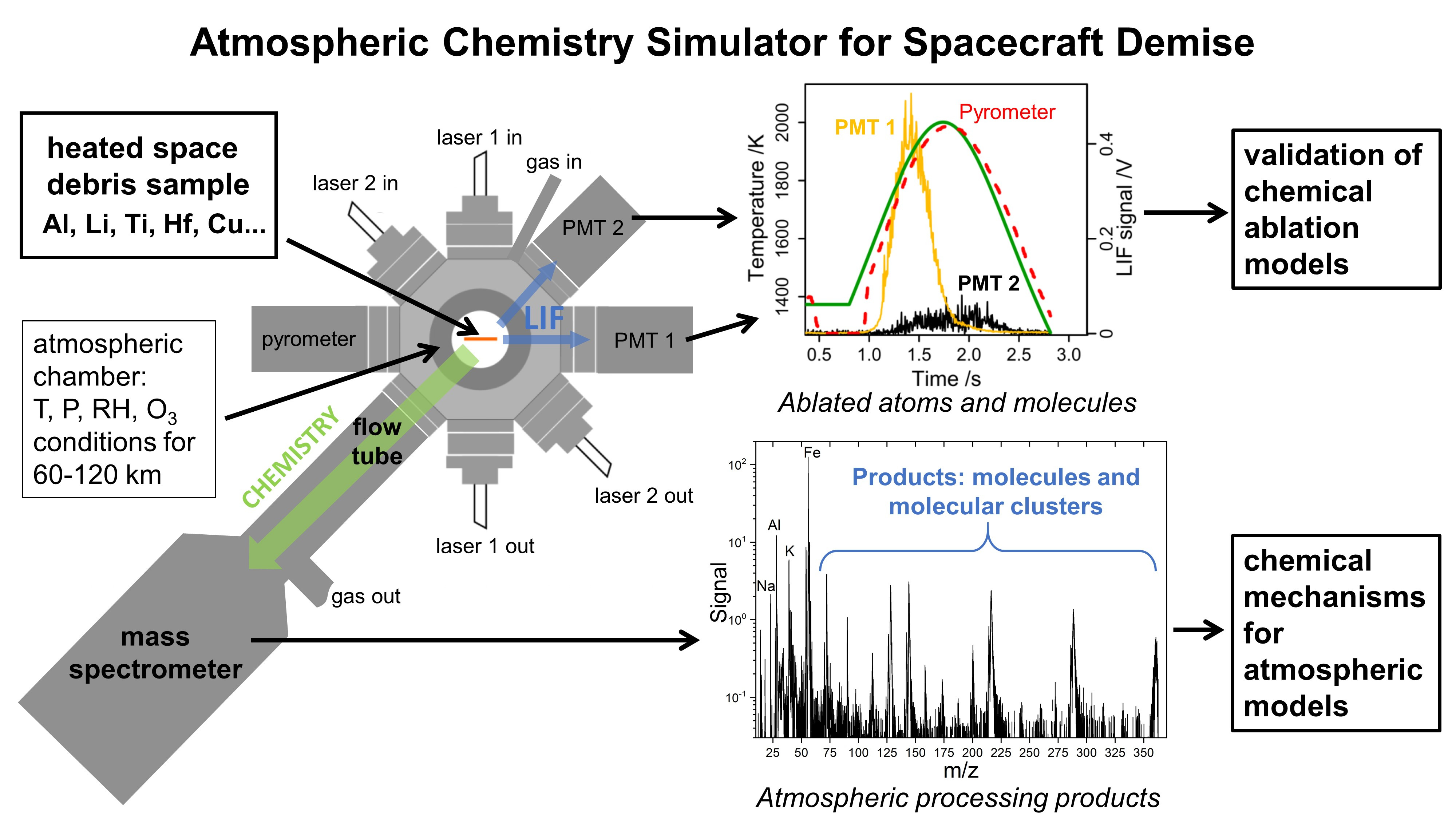A large number of low earth orbit satellites are projected in the coming decades, which has led to concerns about environmental impacts of demised spacecraft. The current flux of anthropogenic aluminum vapors entering the Earth’s atmosphere is estimated to be 10 times larger than the natural flux from meteoroids. Metals ablated from meteoroids between 80 and 110 km react with atmospheric constituents in the mesosphere forming meteor smoke particles, which are transported by the global circulation to the stratosphere, where they entrain sulfuric acid aerosols and modify their properties. Metals ablated from demised spacecraft at ~60 km have a similar fate. Recent measurements show that 10% of stratospheric aerosols contain metals from re-entering satellites and rocket stages. This points to unaccounted impacts on key atmospheric constituents beyond gas-phase chemistry, via aerosol liquid-phase and heterogeneous chemistry. The proposed idea is stablishing the specific chemical paths of anthropogenic metals in the lower mesosphere-stratosphere, in order to pinpoint key molecules that enter stratospheric aerosol and thus identify potential changes in their chemical makeup and physical properties. To address this question, we propose using the Meteor Ablation Simulator (MASI). This unique facility will be modified to carry out ablation experiments with spacecraft debris analogues under realistic atmospheric conditions at ~60 km, which cannot be done in wind tunnel facilities. Furthermore, in the MASI the ablation region can be probed by mass spectrometry to detect polyatomic molecules lacking optical spectra. In a second stage, a fast-flow tube facility will be used to study the reactivity and photochemistry of the key chemical products identified. This work will produce a set of chemical networks, including rate constants and photolysis rates, which are required for proper atmospheric modelling of the chemistry and transport of anthropogenic metals in the atmosphere.

